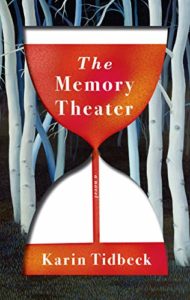 The Memory Theater, by Karin Tidbeck
The Memory Theater, by Karin Tidbeck
Synopsis: A series of fairytale vingettes linked via a narrative thread
Book Review: For what it is, this is a pretty good book. The fairytales are distinctive and imaginative, while being solidly in the traditional fae aesthetic. Each individual vignette is strongly focused visually and thematically on its particular scene. They are really neat snapshots that I’m sure will stick with me for quite a while. I enjoyed all of them.
There is even a theater troupe within the book (the titular “Memory Theater”) that goes around recreating such vignettes within the text, which is a neat touch!
The fae themselves are fantastic. They are exactly how you’d think of 2-year-olds with nigh-infinite power. They are completely innocent, because they are so unaware of the internal experiences of others. This makes them absolutely evil, of course, much like 2-year-olds would be if they weren’t tiny and helpless. It’s easy to hate their evil, but it’s hard to hate them specifically, because they are ultimately so innocent that they can’t even BE evil, they can just DO evil. It makes their atrocities all the more shocking.
That being said, in a collection of vignettes, I think aesthetic is extremely important. In general, I consider aesthetic important in most things, and very important in art. You can get away with a LOT as long as it’s beautiful. Conversely, writing something good is marred if it’s ugly. Vignettes tend to have little in the way of plot/characters, and are primarily about creating a feeling, so they lean on aesthetic even more than most stories. Unfortunately, the writing in the vignettes from the POV of Dora is… unpleasant.
I think this is intentional. When vignettes are told from the POV of the fairy, we get standard sentence structure, sometimes with twists and intricacies. We get fancier phrasing, and words with flourish. It’s not outstanding, but it doesn’t interfere with the reading. Dora, on the other hand, is a very simple person. I believe she is written as someone with functional autism, and it’s done pretty well. As part of this, all her vignettes are written with a particular style. The sentences are short and plain. The words are simple, the descriptions are flat, the prose is matter-of-fact without embellishment or care for presentation. It is, to be honest, very ugly prose. It’s hard to read, because of how ugly it is. Again, I think this is intentional, and it was a bold strategy. But it significantly detracted from my enjoyment.
And since this is a series of vignettes, there isn’t much to the overall narrative that ties them together. This is fine, for this type of book. It is a very short novel, and it doesn’t overstay its welcome. It doesn’t need to have an overarching storyline, or character development, or thematic purpose. But when you don’t have the lyrical beauty of words to bask in, it makes the lack of a strong narrative more conspicuous. I ended the book wondering “what was the point?”
I’m not sure about recommendation here. It was cool, but not gorgeous, and without a drive behind it. This, to me, is ideal beach reading. Light and enjoyable, without asking major emotional investment. So… Not Recommended if you’re only looking for the hard stuff, but Recommended for the inbetween-times in life.
Book Club Review: Another one of those books were everyone came in saying “Well, this seems like it should be good, but it’s unsatisfying, what went wrong?” and we hashed it out as a group. A fun exercise, and its super short, so not a huge reading commitment. Definitely better than Machinehood for this purpose. While maybe not ideal for Serious Business, I think I would recommend it for a high-stress time in life when lower stakes and investment would be a welcome relief. Recommended with Caveats.
